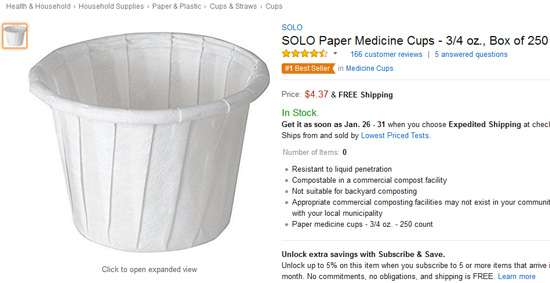5 Huge Problems Nobody Told You About American Healthcare

If, like us, you've ever had to pay $5,000 in medical bills for a few stitches after crashing your razor scooter trying to jump a bag of charcoal, you already know how nightmarishly ridiculous the state of health care in the U.S. has become. However, odds are you have no idea why health care costs more than a newspaper heir's ransom and rarely seems to make anyone better. As it turns out, the causes of our terrible system are pretty obvious, but for some reason, nobody has figured out how to make them go away.
We Pay More For Every Uninsured Citizen (and Uninsured Immigrant)
Because health care prices are out of control, it's important for people to get health insurance. Thankfully, the Affordable Care Act (also known as the Evil Black President's Socialist Plot) expanded that coverage to millions more Americans. Unfortunately, this has made a lot of people somewhat bitter, because their premiums increased to account for all the new sick people suddenly receiving insurance. For these angry folks, it's common sense to want to to be rid of the ACA so that everyone has to fend for themselves again -- just as God intended. Joke's on them, though: They're paying for the medical bills of uninsured Americans, too. And that shit is expensive.

If someone has insufficient (read: zero) insurance, they don't get turned away at the emergency room when a stop sign is sticking out of their eye. Doctors are still going to help them, because of that whole oath thing. But they're not doing it for free, so the cost of their visit is passed on to people who do have insurance, in the form of higher premiums or higher deductibles. In the years before Obamacare, a whopping $42 billion in health care costs was left unpaid. Families were paying an average of $1,017 more each year to cover that cost.

It's not just citizens that are adding to this burden, either. Turns out that undocumented immigrants also get sick every so often, and they don't patch themselves up with makeshift first aid kits like action movie heroes. About 18 percent of uninsured injury-and-illness-havers are undocumented Hispanic immigrants, according to the Census Bureau, and doctors are rudely giving them as much help as they would a patriot. But before you go blaming them for selfishly bleeding all over your hospitals for free, remember that these folks are legally barred from getting insurance through the Affordable Care Act. Some lawmakers tried to change that earlier this year, with the important caveat that immigrants could never receive government subsidies, but for some reason, we're going to assume that this proposal won't be gaining any traction in this administration.
We Don't Track Whether Medical Procedures Work Or Not
Here's some good news: Apparently, lung transplants are great at helping patients with cystic fibrosis! A study showed that 67 percent of patients lived five additional years with transplants, and 50 percent of them lived more than 10 years. That's great, right? If only we could get medical success stories like that more often. Well, here's even better news: We totally could, if the health care industry bothered to do follow-ups to see if surgeries were effective, which is not something it currently does.

Doctors have a hard time finding any data exploring the long-term effects of surgeries, because 84 percent of U.S.-recognized medical specialties have no data registries at all. One doctor who performs pancreas islet transplantation (which we assume replaces your pancreas with a small tropical island) wasn't even able to access data on whether or not his specialty surgery was in fact helping anybody, which means some doctors will never find out whether they're more serial killer than healer in the long term.
This poor record keeping doesn't only affect exciting and exotic surgeries, either. Did you know we don't track official information on medical errors? Because there's no billing code for "accidentally left breakfast taco inside patient," it's not tracked as a medical statistic, so we don't really know how widespread the problem of "egregious hospital error" truly is. One study suggests that medical errors could be the third-largest cause of death in the United States, killing a staggering quarter million people every single year. This isn't a difficult problem to solve. Hell, you could probably even cover the medical cost via the money you'd save retrieving all those expensive watches and wedding rings.

And maybe when we start keeping records, it might be good time to get more hospitals to begin noting if patients are happy or not about their treatment. Half of the nation's hospitals use surveys to acquire patient feedback, but it's only recently that many hospitals started using them to see if their patients were suffering in one way or another, whether it be from long wait times, confidentiality breaches, or doctors distractedly repeating their cancer diagnoses four times over. When the University of Utah hospital started showing its doctors their dismal ratings (with at least one doctor scoring in the first percentile, as low as possible), they immediately started listening to their patients more, and their scores drastically improved. Now they just need to keep track of all their instruments during surgery, and whether that surgery actually helps the patient, and they'll be all set.
Enormous Wait Times Are Caused By A Serious Doctor Shortage
If you've ever had an injury that was really horrific and/or awesomely metal, you've spent a seemingly inordinate amount of time in the emergency room waiting to get your ass reattached to your torso. Today, patients are waiting an average of 64 minutes for a doctor's visit that is only 20 minutes long. And the reason for that is pretty straightforward: We simply don't have enough doctors to go around.

The United States is currently facing a doctor shortage that could reach 90,000 by the year 2025, leaving many Americans without easy access to medical care and putting the future of rectal exam jokes in jeopardy. These dwindling figures are already seriously affecting rural areas. In New Mexico, for example, there is only one doctor for every 1,100 patients. To make matters worse, a lot of doctors are old as dirt, with an average age of 52 and many ripe for retirement, which must be the worst news for geriatric nurses since the introduction of Viagra.

But why are we being starved of doctors? Part of the problem is that we can't train enough of them in hospitals, because federal law won't allow it. Since Medicare absorbs part of the cost, Congress limits the number of medical school graduates who can train as residents in hospitals, effectively capping the number of new doctors we get every year. The Association of American Medical Colleges is asking Congress for another $1 billion to train 3,000 more doctors per year, but it seems that money is reserved for making terrible fighter jets instead. On the plus side, your family will save lots of money on food when all of your untreated organs shut down at the same time.

For anyone who gets paid by the hour, which is most Americans, those waits in the emergency room also result in lost income -- about $43 a person a visit, adding up to a collective $52 billion a year pissed away reading seriously outdated issues of Time. Gosh, there seem to quite a few ways for us to find some extra cash to put into our health care system, and they all strangely involve politicians not being greedy bastards. Speaking of ...
Prices For Drugs Are Out Of Control
Remember when human personification of a used needle Martin Shkreli announced that he was generously raising the price of a toxoplasmosis drug by 5,500 percent, and then went and bought a one-of-a-kind Wu-Tang Clan album for $2 million? Unfortunately, the main reason you know of that case is that Shkreli is an attention-seeking idiot. He's by no means the only one jacking up drug prices.

Patients and hospitals have been plagued by out-of-control drug prices for many years now, and it's finally become so bad that pointing it out isn't career suicide anymore. In fact, Bernie Sanders made dozens of headlines last year when he lashed out at the unnecessarily high price of the Epipen. But it's not just consumers plagued by high drug prices; hospitals are feeling the effects too. When doctors determine which drugs to prescribe their patients (who, we will remind you, usually need them to live), they are now being alerted to pharmaceutical treatments that are too expensive to reasonably prescribe, making them think twice about whether or not they should give their patients the most effective drug possible, which is how Philip K. Dick novels start.

It's not just prescription drugs, either. Some hospitals are now reconsidering things like intravenous painkillers or injectable heart medications because they cost the hospital more than shoving a bunch of chewable tablets down their patients' gullets. After the price jumped from a few dollars to a whopping $60 per tablet, a hospital in the Indiana University Health system had to switch from Vitamin K pills to mixing the now-cheaper injectable liquid with cherry flavoring so patients could swallow that instead. Pretty soon, they'll be hiding syringes of antibiotics in their patients' mashed potatoes.
But why are prices getting so out of control? Well, because the pharmaceutical drug industry is systematically eliminating its competition by consolidating and buying up its competitors. A Bloomberg study from last year found 60 drugs that doubled in price over 16 months, and 20 drugs that quadrupled in price. Once a single company is the only entity creating a specific drug, they're free to jack up the price as much as they wish. If you can't afford to mortgage your house for a cancer drug, you might want to try diluting your medication by mixing it with the tears of heartbroken free market theorists.

And if you think hospitals haven't been paying attention to this, guess again, because ...
Prices For Everything Else Are Even More Out Of Control
Without looking at your search bar: How much does this small paper cup cost? The kind you put medicine in?
Trick question! There are two answers: If you order a pack of them off Amazon, you can get 250 of them for less than $5, which is about two cents a cup.
But if you have one handed to you by a nurse in a hospital, it could cost as much as $12, which you might notice is a 60,000 percent increase in price.
Paper cups aren't the only thing that gets an immediate price hike for being near a lab coat. Everything at a hospital costs far more than it should. You could be charged $39 for getting your finger pricked by a nurse or $200 for a warm blanket, and that's the small stuff. In the most overpriced hospital in America, you could be looking at a bill of $14,000 for getting four stitches. Or you could be charged $7,000 for a bunch of nurses to wipe off your newborn baby -- even if you delivered it in your car outside of the hospital.
This rise in prices can be attributed to a couple of factors. One of these is, again, consolidation. As hospitals grow and acquire each other, they're able to share resources and work a bit more efficiently. That sounds like it should cost patients less, but consolidation also means less competition, and because hospitals are a business in this country, they'll charge higher prices, knowing you're not able to take your "business" (i.e. severed thumb) elsewhere. The other reason for high prices is literally who the fuck knows. Prices for medical supplies and procedures are bafflingly random across the country. A bag of IV fluid that costs $16 at one hospital could cost $137 at another hospital in the exact same city, and the prices have absolutely nothing to do with demand or market fluctuations. The one thing that stays the same everywhere is that you're going to be paying more for an overnight visit than you paid for your first car.

"Why would they charge people so much when they know patients can't afford it?!" you should be yelling at your computer by now. To both answer your question and infuriate you further, we're going to clue you in on something health care executives refer to as the "Saudi sheikh problem." Basically, because hospitals have to charge every patient the same amount for the same treatment, they don't want to lower their prices just in case a Saudi sheikh comes in with an enormous pile of money. If the hospital lowered its prices, they wouldn't be able to snatch that hypothetical enormous pile of money from that hypothetical sheikh. So because hospitals want to be able to charge huge sums of money of wealthy patients, the rest of us have to take out a second mortgage to pay for an emergency room visit.

This is the true danger of letting your health care infrastructure run itself as a for-profit business. Each hospital has a de facto monopoly on any emergencies that happen within a few miles of it. When you're bleeding out due to a lawnmower explosion or vaping experiment gone awry, you're not going to go to go online to compare a handful of hospitals like you're booking a hotel. This seems like the perfect situation for the government to step in and hand down some good old-fashioned regulations and possible spankings, but they've been focused on providing people with health insurance instead of addressing the true cause of high medical prices -- which is seeing mixed results, to say the least.
So next time you're in need of a hospital, you might want to suck it up, go online, book a hotel somewhere in Canada, fly up there in business class, and stumble into one of their socialist hospitals. It'll probably still turn out cheaper than getting your eyebrow sutured in an American hospital.
Think Nana and Pop-Pop's loving 60-year monogamous relationship is quaint and old-fashioned? First off, sorry for that disturbing image, but we've got some news for you: the monogamous sexual relationship is actually brand new relative to how long humans have been around. Secondly, it's about to get worse from here: monkey sex. On this month's live podcast, Jack O'Brien and Cracked staffers Michael Swaim and Teresa Lee welcome Dr. Christopher Ryan, podcaster and author of 'Sex at Dawn,' onto the show for a lively Valentine's Day discussion about love, sex, why our genitals are where they are, and why we're more like chimps and bonobos than you think. Get your tickets here!
Also check out 5 Health Care Rip-Offs The Industry Hopes You'll Never Notice and 5 Ways U.S. Medical Billing Is Way More F#@ked Than You Think.
Subscribe to our YouTube channel, and check out If Insurance Companies Were Honest, and other videos you won't see on the site!
Follow us on Facebook, and let's be best friends forever.

